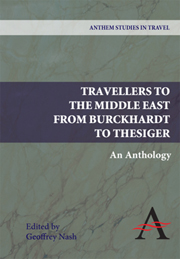Book contents
- Frontmatter
- Contents
- Acknowledgements
- Introduction
- PART ONE THE COMING OF EMPIRE 1800–1879
- The Ottoman Empire and Egypt
- 1 The Spirit of the East
- 2 Eothen
- 3 The Crescent and the Cross
- 4 Eastern Life, Present and Past
- 5 Visits to Monasteries of the Levant
- 6 Letters from Egypt
- Arabia
- Persia
- PART TWO COLONIALISM AND RESISTANCE 1880–1950
- Bibliography
4 - Eastern Life, Present and Past
from The Ottoman Empire and Egypt
Published online by Cambridge University Press: 05 March 2012
- Frontmatter
- Contents
- Acknowledgements
- Introduction
- PART ONE THE COMING OF EMPIRE 1800–1879
- The Ottoman Empire and Egypt
- 1 The Spirit of the East
- 2 Eothen
- 3 The Crescent and the Cross
- 4 Eastern Life, Present and Past
- 5 Visits to Monasteries of the Levant
- 6 Letters from Egypt
- Arabia
- Persia
- PART TWO COLONIALISM AND RESISTANCE 1880–1950
- Bibliography
Summary
Martineau's life represents a triumph over early adversity. Overcoming poverty and ill health in childhood, and despite advancing deafness as an adult, she supported her siblings and established a career by writing for the Daily News and the Edinburgh Review. Born into a Unitarian family her radicalism – especially her antislavery principles and concern for the conditions of women – is incorporated into her travel writing, beginning with Society in America (1837), an account of a tour of both the southern and northern states of the USA. Martineau even went so far as to produce a manual for travellers, How to Observe Morals and Manners (1838). Her write up of her journeys in Egypt and Palestine of 1846–47, Eastern Life, Present and Past, appeared in 1848. As an observer of the East her Victorian social reformist principles and espousal of the ‘higher criticism’ of religion appeared to leave little room for her to connect with local people and their customs. She saw the world of the Middle East ‘as frozen in biblical history’ (Harper DLB/166: 255). Pointing out that only five of the twenty-four chapters of Eastern Life are concerned with ‘modern’ Egyptians, Billie Melman dubs Martineau as belonging to the ‘mythopically ethnocentric’ type of traveller: ‘Time and again she discloses her total lack of interest in the Muslim Orient and in contemporary Egypt’ (Melman 1992: 63, 242).
- Type
- Chapter
- Information
- Travellers to the Middle EastAn Anthology, pp. 25 - 30Publisher: Anthem PressPrint publication year: 2009



